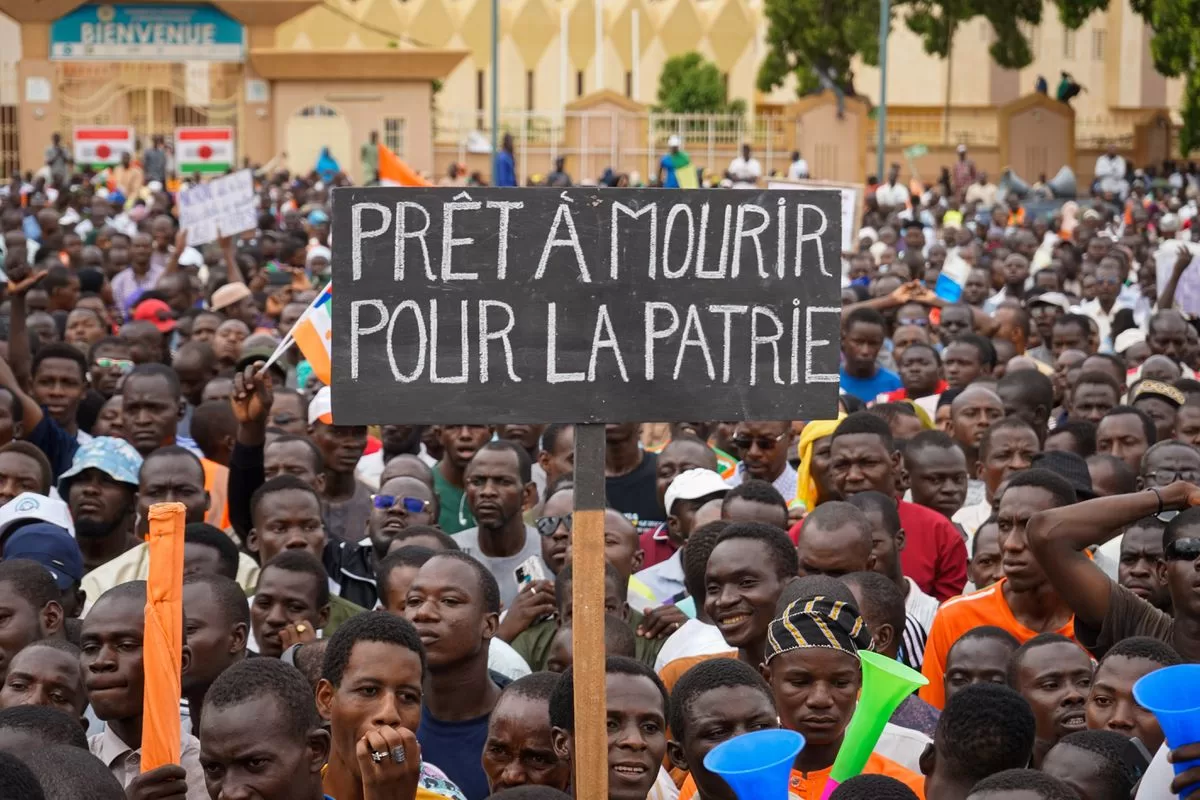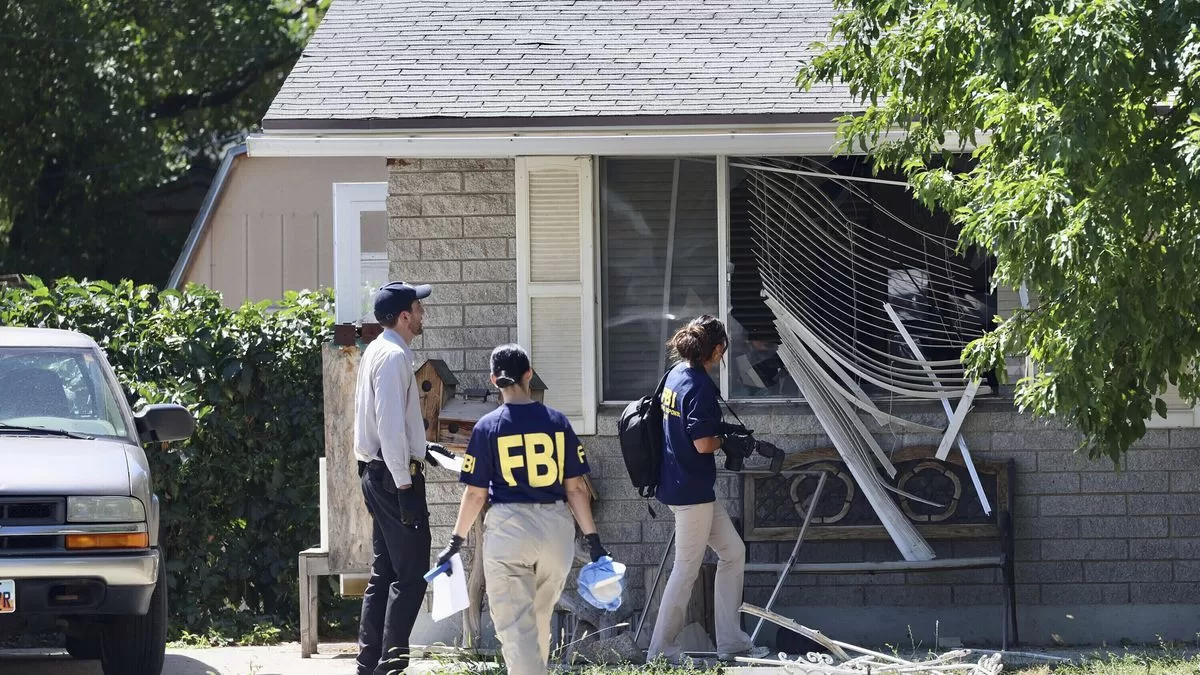General Abdourahamane Tchiani, leader of the military coup junta in Niger, announced Saturday that he intends to remain in power during a three-year transition period. In this way, the military maintains its defiance in the face of the threat of a military intervention approved by the Economic Community of West African States (Cedeao) and warns that “if an aggression is undertaken against us, it will not be the walk that some believe. In fact, they will be up against 26 million Nigeriens,” he added. In parallel, diplomatic efforts continue: an ECOWAS mission managed to meet in Niamey, the Nigerien capital, both with General Tchiani himself and with the ousted President Mohamed Bazoum.
Tension and the pre-war atmosphere continue to rise in Niger. This Sunday, thousands of people demonstrated in Niamey to express their support for the military junta, the National Council for the Protection of the Fatherland (CNSP, for its acronym in French), chanting slogans against the military intervention, ECOWAS and France. Also, on Saturday, thousands of young people went to the Seyni Kountché national stadium to register as volunteers to support the Armed Forces, thus responding to the call of the military junta, which promised them a payment of 50,000 CFA francs (about 75 euros).
Last Friday, the heads of the ECOWAS armies approved the operational plan for a possible military intervention in Niger and defined the exact day of it, although they did not reveal it, reported the commissioner for Political Affairs, Peace and Security of the regional organization , Abdel-Fatau Musah, who assured that despite everything they kept the door open to dialogue. In this sense, a delegation from ECOWAS headed by Abdulsalami Abubakar, former president of Nigeria, was received on Saturday at the Niamey international airport by the transitional prime minister, Ali Mahaman Lamine Zeine. Subsequently, said mission managed to meet with both General Tchiani and the ousted President Mohamed Bazoum, who is still being held by the military in precarious conditions.
At night, the coup leader appeared on national television to read a 10-minute statement in a solemn tone. In said speech, Tchiani assured that the intention of the military was not “to confiscate power” and that they also remained open to dialogue, affirming at the same time that the duration of the transition to return power to civilians “will not exceed three years”. To do this, he called for an inclusive national dialogue with the different political and social actors so that, within a month, they would formulate concrete proposals and “lay the foundations of a new constitutional life,” as he said. In this sense, he emphasized the “popular support” that the coup d’état on July 26 had and accused Bazoum and his government of “preventing democratic alternation” through the “imprisonment and exile of opponents ”.
Likewise, he attacked ECOWAS for preparing “an aggression (against Niger) in complicity with a foreign power, foreign to our community space and our continent”, in reference to France. “They think that they can impose on us by force what is profoundly unacceptable and contrary to our vital interests and our cardinal values. They want to isolate our country at a time when our people need community solidarity the most to face terrorism and insecurity. It seems that they have not taken into account the extent of the backlash that a military aggression against Niger would have throughout the region”, added the coup leader.
For the first time and as a warning to ECOWAS, Tchiani made reference to the military aid promised by the military regimes of Guinea-Conakry, Mali and Burkina Faso, assuring that “it would be tragic to face a war against our brothers in arms with whom we were fighting yesterday for the security of our region (…) neither the CNSP nor the Nigerien people want a war and we remain open to dialogue. But let us be understood correctly, if an aggression is undertaken against us, it will not be the walk that some believe. In fact, they will be up against 26 million Nigeriens.”
Join EL PAÍS to follow all the news and read without limits.
subscribe
“Illegal” and “inhumane” sanctions
General Tchiani devoted a large part of his speech to denouncing the “illegal” and “inhumane” sanctions imposed by ECOWAS on Niger on July 30, which led to the suspension of all commercial transactions with the countries of this regional body, the closure of borders and the freezing of the country’s financial resources. Among other consequences, there is already a rise in prices, supply problems of basic food and pharmaceutical products, lack of funds in the state coffers, which depends to a large extent on foreign aid, as well as frequent power outages. “These sanctions were not intended from a solution-seeking perspective, but rather to bring us to our knees and humiliate us,” he added.
For its part, the Algerian Ministry of Foreign Affairs has issued a statement in which it “profoundly rejects the fact that the resort to violence has taken precedence over the path towards a negotiated political solution in Niger.” The Algerian government continues to believe that such a solution is still possible and believes that “not all the paths that can lead to it have been traveled and all the possibilities have not been exhausted,” the statement added. In this sense, he calls “everywhere for calm, wisdom and reason”, taking into account that “the history of our region teaches us abundantly that military interventions have brought more problems than solutions and have been additional factors of confrontation and fracture rather than sources of stability and security”.
Follow all the international information on Facebook and Twitteror in our weekly newsletter.
Subscribe to continue reading
Read without limits





